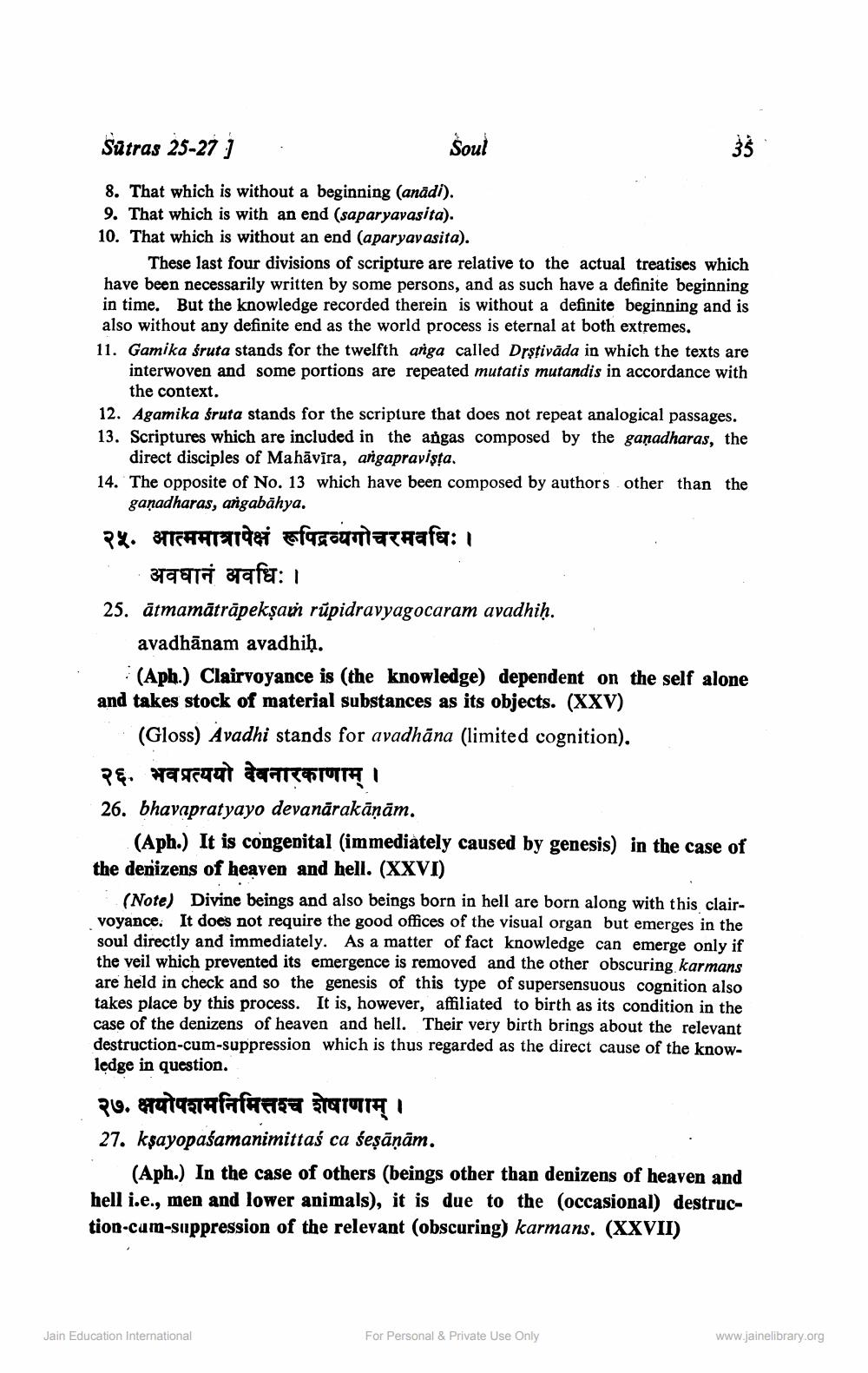________________
Satras 25-27 1
Soul
8. That which is without a beginning (anādi). 9. That which is with an end (saparyavasita). 10. That which is without an end (aparyayasita).
These last four divisions of scripture are relative to the actual treatises which have been necessarily written by some persons, and as such have a definite beginning in time. But the knowledge recorded therein is without a definite beginning and is also without any definite end as the world process is eternal at both extremes. 11. Gamika śruta stands for the twelfth anga called Drstivāda in which the texts are
interwoven and some portions are repeated mutatis mutandis in accordance with
the context. 12. Agamika fruta stands for the scripture that does not repeat analogical passages. 13. Scriptures which are included in the angas composed by the ganadharas, the
direct disciples of Mahāvīra, argapravista. 14. The opposite of No. 13 which have been composed by authors other than the
ganadharas, argabāhya. २५. आत्ममात्रापेक्षं रूपिद्रव्यगोचरमवधिः।
3TTET Tafe: 1 25. ātmamātrāpekşam rūpidravyagocaram avadhiḥ.
avadhānam avadhiḥ.
(Aph.) Clairvoyance is (the knowledge) dependent on the self alone and takes stock of material substances as its objects. (XXV)
(Gloss) Avadhi stands for avadhāna (limited cognition). २६. भवप्रत्ययो देवनारकाणाम् । 26. bhavapratyayo devanārakāņām.
(Aph.) It is congenital (immediately caused by genesis) in the case of the denizens of heaven and hell. (XXVI)
(Note) Divine beings and also beings born in hell are born along with this clairvoyance. It does not require the good offices of the visual organ but emerges in the soul directly and immediately. As a matter of fact knowledge can emerge only if the veil which prevented its emergence is removed and the other obscuring karmans are held in check and so the genesis of this type of supersensuous cognition also takes place by this process. It is, however, affiliated to birth as its condition in the case of the denizens of heaven and hell. Their very birth brings about the relevant destruction-cum-suppression which is thus regarded as the direct cause of the knowledge in question. २७. क्षयोपशमनिमित्तश्च शेषाणाम् । 27. kşayopasamanimittaś ca seșāņām.
(Aph.) In the case of others (beings other than denizens of heaven and hell i.e., men and lower animals), it is due to the occasional) destruction-cum-suppression of the relevant (obscuring) karmans. (XXVII)
Jain Education International
For Personal & Private Use Only
www.jainelibrary.org




